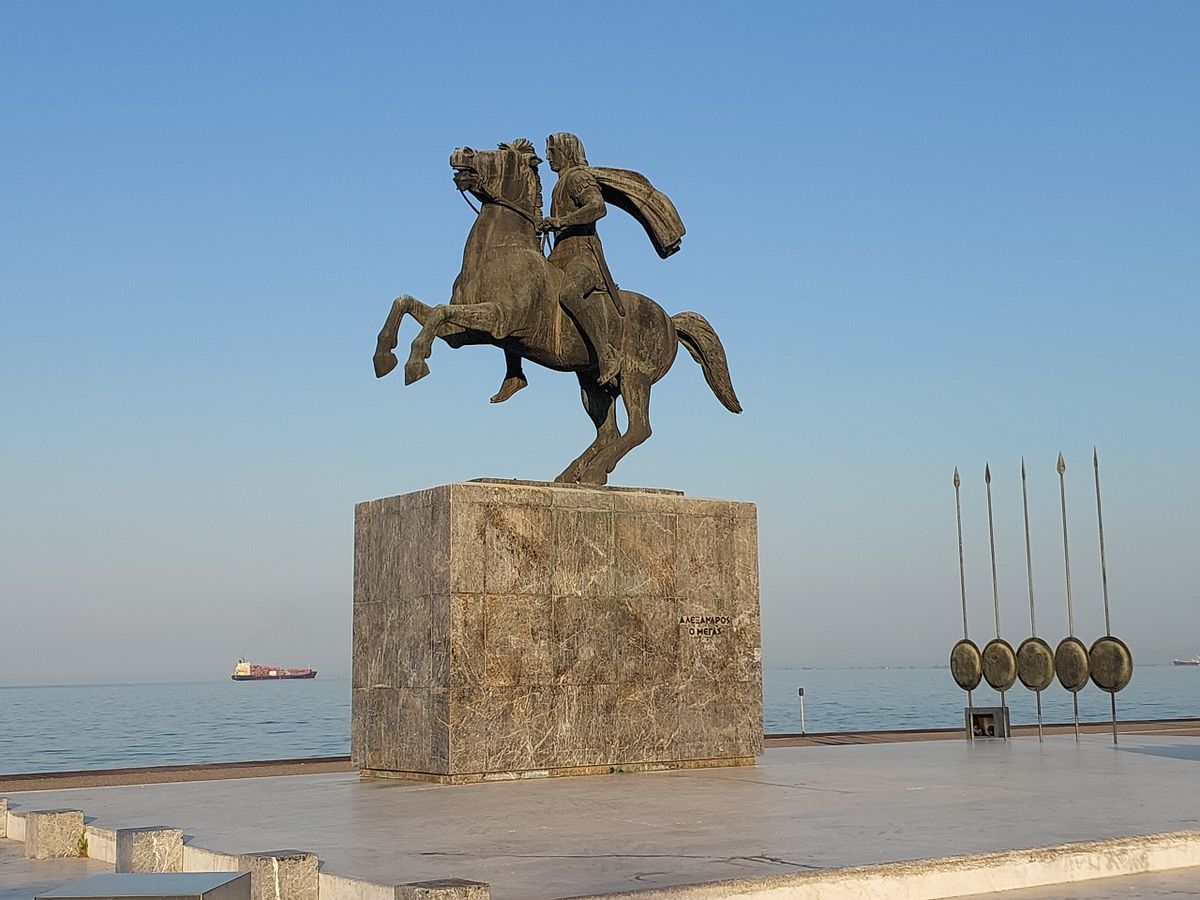On Jan. 31, 2024, Netflix released a six-part docudrama titled "Alexander: The Making of a God," detailing the life and times of the legendary Macedonian king Alexander the Great. Six minutes into the first episode, a young Alexander and his friend Hephaestion are sword-fighting. Two minutes later, they kiss. Users on X (formerly known as Twitter) went wild.
Netflix made a new documentary about Alexander The Great. Within the first 8 minutes, they turned him gay. pic.twitter.com/y56b4eDkjb
— End Wokeness (@EndWokeness) February 5, 2024
First, let's get the obvious out of the way: Alexander the Great lived around 350 B.C., so we can't just ask him about his life directly. Instead, historians and archaeologists must use a variety of sources to speculate on the past, like one of several biographies of Alexander written much closer to the time he was alive (the one by Quintus Curtius Rufus, for instance).
Unfortunately, looking at the sources does not give us a definitive answer either way. Because the Netflix series is a docudrama instead of a true documentary, the filmmakers were able to dramatize aspects of Alexander's life and therefore had to choose one of the theories about his relationships to maintain a consistent narrative.
But before examining the limited evidence we have about Alexander's sexual orientation, we need to investigate same-sex relationships in ancient Greece as a whole, because what we consider "normal" would not necessarily be considered normal in 350 B.C. Examining how the ancient Greeks felt about same-sex relationships overall has given historians at least some insight into how Alexander saw the world and what he would have considered "normal" behavior.
What we know about those attitudes tells us that if he did have homosexual relationships, Alexander would never have thought of them in the way that we do now. The ancient Greeks considered how one loved, not whom one loved. Instead of dividing the relationship into gender, the Greeks divided sexual experiences into how each person participated in the act. The active role was associated with masculinity and the passive role with femininity.
It's also important to acknowledge that each Greek city-state had a different culture (think of the stereotypes of the militaristic Spartans versus the philosophical Athenians), and so their opinions on same-sex relations differed. In Athens, for instance, sources suggest that men who took on a passive and submissive role during sex were looked down upon. The crime of hubris, "the act of humiliating or dishonoring another person for one’s own gratification," could be used in this manner to argue against same-sex relations. Meanwhile, in Thebes, a military unit called the Sacred Band, considered one of the most powerful armies of its time, reportedly consisted of 150 pairs of male lovers.
But regardless of what each city-state believed, we must discuss the practice of pederasty first. For an ancient Greek, pederasty was a socially acknowledged relationship between a younger man (the "erastes") and a teenage boy (the "eromenos"). In modern times, it's difficult to escape the mental connection to pedophilia and child abuse. But evidence from sources written at the time has led scholars to disagree with this connection in regards to ancient Greece.
First, we know the relationship was not always completely sexual. We have depictions of erastai giving their eromenoi gifts, and in some city-states like Sparta, the erastes was expected to help introduce the eromenos to adult society. In addition, some historians have argued that because many of these Greek cultures looked down on being penetrated during sex, a pederastic relationship would not predominantly feature penetrative sex.
Backing up some of these ideas is a whole load of classical literature. Plato and Aristophanes both mention pederastic relationships and of course, the poet Sappho was so influential that she gave us two words for female same-sex relationships: "sapphic" from her name and "lesbian" from her home, the island of Lesbos. Classicists also have turned to Greek mythology, identifying Ganymede and Zeus or Heracles and Iolaus as potential pederastic relationships. Some scholars interpret the relationship between the main hero of Homer's "Iliad," Achilles, and his friend Patroclus, in the same way, which is a perfect tie-in back to Alexander the Great.
One piece of evidence supporting a romantic same-sex relationship is that Alexander reportedly embraced comparisons of his relationship with Hephaestion to that of Achilles and Patroclus. There's also the case of Bagoas, a Persian eunuch and another of Alexander's potential lovers. If these relationships did happen, it's unclear how much they resembled the pederastic relationships common at the time.
The argument against Alexander having these relationships is simply that nobody explicitly described them as such. Critics might dismiss this as a writer assuming that everyone understood the greater context, but because time travel has not yet been invented, historians and classicists are stuck with their educated guesses.
As for the Netflix series, we repeat: "Alexander: The Making of a God" is a docudrama, not a straight documentary. There are better, more trustworthy sources to get information.
